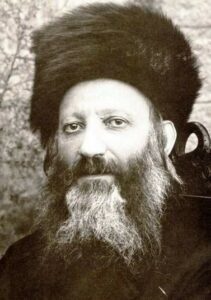by Tzvi Fishman
At the center of this week’s Torah portion is the tragic episode of the Spies in the Wilderness. Rashi informs us that they were important men, Torah scholars, the leaders of the tribes, yet they discouraged the Children of Israel from journeying on into the Promised Land. In punishment, Hashem slew the entire male generation, some 600,000 men, making the sin of the Spies perhaps the greatest national transgression in our history. In comparison, in the wake of the sin of the Golden Calf only a few thousand people were slain. In Chapter 19 of the universally revered book, “Mesillat Yesharim,” the Ramchal explains that the Spies (excluding Joshua and Caleb ben Nun) feared that they would lose their authority and honor upon entering the Promised Land since a new type of leadership was needed in conquering and settling the Land.
Today there is still disagreement about the mitzvah of living in Israel. If you ask a Chabadnik in Crown Heights why he doesn’t move to Israel, he is likely to answer that he loves Eretz Yisrael and speaks out strongly against proposals to surrender parts of the Land for peace, and that many Chabad Hasidim live in Israel, but that Aliyah isn’t an obligation on everyone until the Moshiach comes to take us there, may it be soon.
Similarly, if you ask the same question to a Satmar Hasid in Williamsburg, he is likely to answer that the “Three Oaths” prohibit Jews in the exile from returning to the Land of Israel in a massive manner in opposition to the Gentiles.
Other Orthodox Jews in New York will answer that Rabbi Moshe Feinstein poskened that Aliyah was an optional mitzvah, like tzitzit, and not an obligatory commandment like keeping Shabbat. Others insist that the Torah was given to the Jews in the wilderness to teach that the Torah can be kept every place in the world, not just in Israel.
Congregants of Young Israel Synagogues, or the Orthodox Union, which promote Aliyah and which largely adhere to the Religious Zionist perspective that sees Aliyah as a positive mitzvah of the Torah in all generations, based on the opinion of the Ramban, will say they are still in America because they have to take care of their aging parents, or because they don’t believe they will find a proper livelihood in Israel, that they are planning to go in another five years, or that in the matter of Aliyah, they follow the ruling of Rabbi Feinstein.

It is told that Rabbi Avraham Yitzhak HaKohen Kook, the Chief Rabbi of Eretz Yisrael, hosted the sixth Admore of Lubavitch, Rebbe Yosef Yitzhak Schneerson, in his home during the Admore’s visit to the Holy Land. Since it was Parshat Matot, Rabbi Kook said a Dvar Torah about the events in the Parsha, asking why Moshe Rabenu didn’t receive Divine punishment for speaking harshly to the tribes of Reuven and Gad for wanting to remain on the eastern bank of the Jordan River and not journey on to the Promised Land proper. After all, when Moshe called the Jews rebels when he smote the rock to bring forth water, Hashem punished him by not allowing him to enter the Land. Here, Moshe calls them “a brood of sinful men,” yet he is not punished. Rabbi Kook explained that because Moshe Rabenu rebuked them for weakening the Nation by not wanting to make Aliyah, as in the case of the Spies, it was correct to address them harshly, and Hashem agreed. “Even more so today,” Rabbi Kook told his distinguished guest. “We see the way of Torah in this matter. When the tribes balked in performing the mitzvah of making Aliyah and conquering the Land of Israel, even though they presented a tangible excuse in possessing much cattle, it is not appropriate to answer them politely – rather yelling at them is the proper response. And if this is the case with the Tribes of Israel, how truer today, in a generation so poor in deeds, even if we find the most justified excuses, if that were possible, in failing to perform the mitzvah of Aliyah to the Land – what are we, what Torah do we have, what is our righteousness, what is our strength when compared to the Tribes in the days of Moshe?” Rabbi Kook added, “Our knowledge is limited, and the ways of Hashem are hidden, but there is absolutely nothing in the world which can absolve a person from making Aliyah to Eretz Yisrael. We must strengthen our faith and belief that only in the Aliyah to Israel and its settlement will the Torah be fulfilled, as it says regarding the exile: “Her kings and her princes are among the nations – there is no Torah,” (Lamentations, 2:9).

Lest the reader think that I am only bringing the opinion of a so-called “Zionist Rabbi,” a few years ago a young Torah student from Lakewood who made Aliyah told the revered Torah authority of the Haredi community, HaRav Chaim Kanievsky in Bnei Brak, that in America, many people maintain that a Jew should not move to Israel until the Mashiach arrives. The reply of the elderly Sage was filmed. “Heaven forbid,” HaRav Kanievski answered. “It is a mitzvah of the Torah to make Aliyah!” (See, https://naavakodesh.org/r-chaim-kanievski-mitzvah-to-move-…/).






